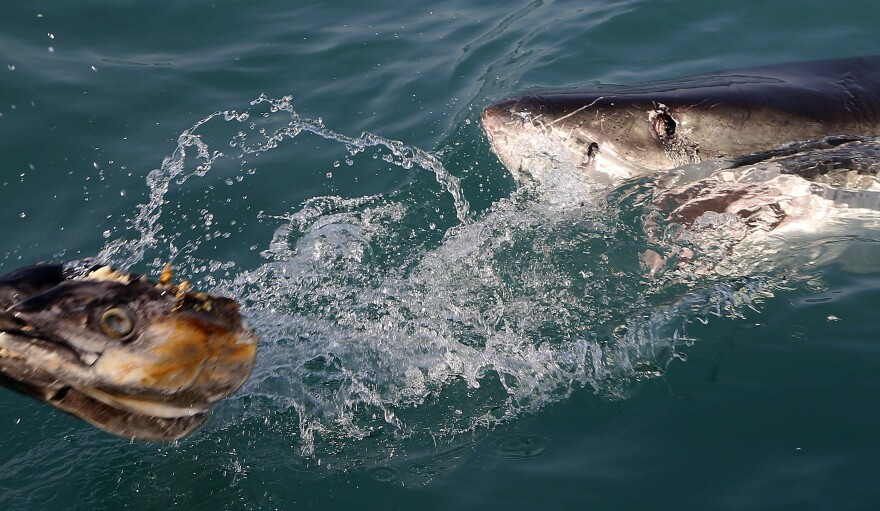Scientists estimate that 800 great white sharks could be swimming in the waters off the Cape Cod, Mass., coastline, according to a study published Thursday.
From 2015 to 2018, researchers took 137 trips to Cape Cod and saw 393 sharks by using commercial spotter pilots and video cameras. Some sharks were left out of the count because videos of them were not crisp enough, they did not have distinct enough features to rule them out as duplicates or they did not return to the area year after year.
Researchers used the actual population counted and applied a model to reach the estimate.
Sharks go to that area to hunt seals, and they usually appear the most infrequently in June and July and peak in August and September, the study says.
Researchers encountered slightly more males, which could be because they are more easily identifiable by their reproductive organs. Most of the sharks were also juveniles and "subadults," the study said.
While great whites are known to hang around Cape Cod's waters, they have been difficult to track because of their elusiveness and smaller populations.
Copyright 2023 NPR. To see more, visit https://www.npr.org.



